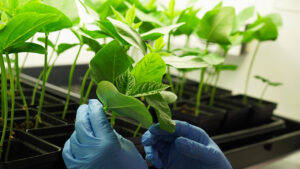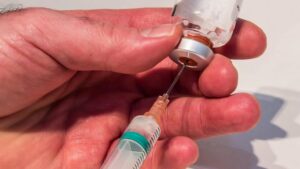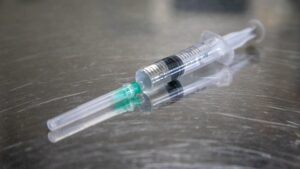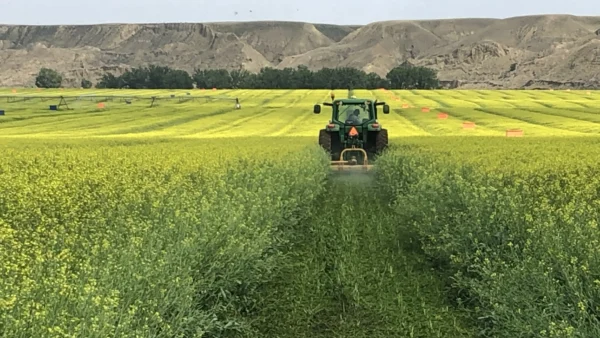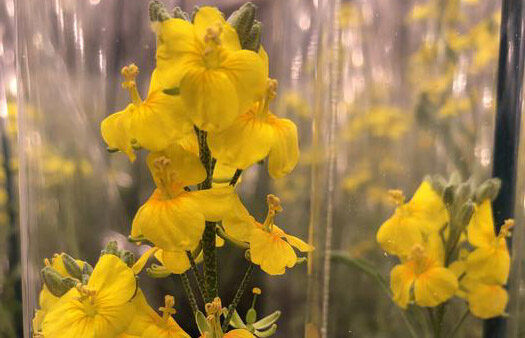Everyone’s frantically looking for a COVID-19 vaccine, but could genetically engineered plants be the solution?
Vaccination is one of the most effective public health interventions of the 20th century. In recent decades, recombinant technologies have enabled the design of experimental vaccines against a wide range of diseases using plant viruses and virus-like particles as central elements to stimulate protective and long-lasting immune responses. At least 71 vaccines against infectious agents have been constructed based on plant viruses. Several plant viruses have already been used for the development of vaccine platforms, which have been tested in human and animal studies, suggesting that plant virus-based vaccines will be introduced into clinical practice soon.
At press time, there was no vaccine ready for any coronavirus (Russia announced in August that it had approved the world’s first, but questions are many in regard to the veracity of the claim and the safety of the vaccine in question). SARS and MERS, caused by different coronavirus strains, were controlled with isolation and quarantine. The efforts to develop vaccines for these two viral diseases came to a halt for lack of active cases as the diseases died out.
The new coronavirus strain 2019 (COVID-19), caused by the severe acute respiratory syndrome virus (SARS-CoV-2), has quickly spread around the globe. It has caused the worst pandemic since the Spanish Flu of 1918. Epidemiologists at the World Health Organization (WHO) and other disease control centres say containing this pandemic demands rapid development of drugs and vaccines. Plant-based vaccines are a technology with proven viability, which has led to promising results for candidates evaluated at the clinical level, meaning this technology could contribute towards the fight against COVID-19.
Plant-based Vaccines
As research groups are developing vaccines to fight the pandemic, they need a method to produce these vaccines quickly, in large amounts and at a low cost. One potential solution is to use plants as bio-factories. The genes to produce the vaccine can be transferred quickly and temporarily to plants that can be grown and harvested using simple and safe farming techniques.
Genetically engineered plants have been used for more than 30 years to provide a platform for manufacturing biopharmaceuticals. A diverse group of biopharmaceuticals, including antibodies, vaccines, growth factors, and cytokines have been produced in plant systems. A recombinant enzyme produced in carrot cells, for example, has been approved by the U.S. Food and Drug Administration for replacement therapy treatment of Gaucher’s disease, a genetic enzyme deficiency. The main advantages of plant-based platforms include their inability to replicate human pathogens. This requires less strident efforts to diminish the risk of contamination during the purification process. Plant-based platforms also require less sophisticated bioreactors for efficient synthesis of complex proteins.
Plant-based vaccines are gradually becoming a reality, although progress has been slower than expected. Slow progress is particularly true for the development of oral vaccines, with the main drawbacks being a poor characterization of antigen stability, bioavailability and reproducibility.
Medicago, a biopharmaceutical company headquartered in Quebec City, began Phase 1 clinical trials for its plant-derived COVID-19 vaccine candidate in July, administering the first doses in healthy human volunteers.
“We are thrilled to see our COVID-19 vaccine candidate enter the Phase 1 trial, and we look forward to obtaining safety and immunogenicity results in October,” said Nathalie Landry, executive vice-president, scientific and medical affairs at Medicago. “Our progress continues to demonstrate the value of Medicago’s unique plant-based vaccine technology.”
The Phase I clinical trial is a randomized, partially blinded study of 180 normal healthy subjects, male and female aged 18-55, and will evaluate dosages of 3.75, 7.5 or 15 micrograms of the recombinant Coronavirus Virus-Like Particle (CoVLP) vaccine candidate alone or with an adjuvant. An adjuvant can be of particular importance in a pandemic situation as it may boost the immune response and reduce the amount of antigen required per dose, allowing more vaccine doses to be produced and therefore contributing to protect the greatest number of people.
Injectable vaccines could be produced by using transient expression systems, which offer the highest protein yields and are already adopted at the industrial level to produce virus-like particle (VLPs) vaccines and other biopharmaceuticals under GMPC-processes.
Stably transformed plants are another option, but this approach requires more time for the development of antigen-producing lines. Nonetheless, this approach offers the possibility of developing oral vaccines in which the plant cell could act as the antigen delivery agent. This is the most attractive approach in terms of cost, easy delivery and neutralizing the pathogen before it can cause infection.
Tobacco-Sourced Vaccines
An international team of scientists from the Institute of Plant Molecular and Cellular Biology (IBMCP), Valencia, Spain, has made the sequence of the Nicotiana benthamiana genome available to international researchers. Commonly referred to as bentha, it is a close relative of cultivated tobacco. Bentha is currently used by several researchers as a bio-factory for experimental vaccines against SARS-COV-2.
Diego Orzáez, a Spanish National Research Council researcher at the IBMCP, explains that bentha has been widely used to produce a large number of biopharmaceutical products. ZMAPP, an antibody mix used to treat Ebola, is produced with bentha.
“We have modified bentha’s genes to improve its ability to produce large amounts of more efficient bio-medicines,” he says. “When we started the project two years ago, SARS-COV-2 was not on the radar. However, since the beginning of the pandemic, several project teams have started working on the production of useful biopharmaceutical products against the pandemic. In development are products ranging from reactants to establish fast immunological trials, to molecules that can be used in a program of mass vaccinations. We hope this speeds up the discovery of new biopharmaceutical products and, ultimately, contributes to the fight against the current and future epidemics.”
Regulatory and Biosafety Obstacles
Legal obstacles, rather than technical and experimental constraints, could delay the arrival of edible vaccines, especially in the countries most in need. Although many countries on all continents have developed GM crops on an experimental level, only 26 nations currently have regulations for their commercial implementation. The Cornell Alliance for Science reports that the use of backward or cumbersome regulatory frameworks, such as the one employed by the European Union, could increase the final cost of bringing the edible vaccine to the market.
In the case of Mexico, where they are already working on the development of an edible vaccine in tomato plants against COVID-19, local scientists are dealing with difficult times under the mandate of a president who has repeatedly declared himself against the use of GM crops and who appointed a scientist famous for being a staunch GM opponent as director of CONACYT, Mexico’s government entity that regulates the national science budget.
“Given the current contingency situation for the COVID-19 we are experiencing, it will undoubtedly make us rethink the legislation of the GMOs that apply not only in Mexico but in Latin America,” says Daniel Garza, a biotechnologist and researcher at the Autonomous University of Nuevo León in Mexico. “What is currently happening allows us to rethink whether we are really capable as countries of being able to face a pandemic of such magnitude without using the full potential that GMOs offer us for the development of vaccines, especially for developing countries. The benefits of biotechnology must be shown to society not as an evil, but as an effective solution to many of the problems that we currently have in the region.”



